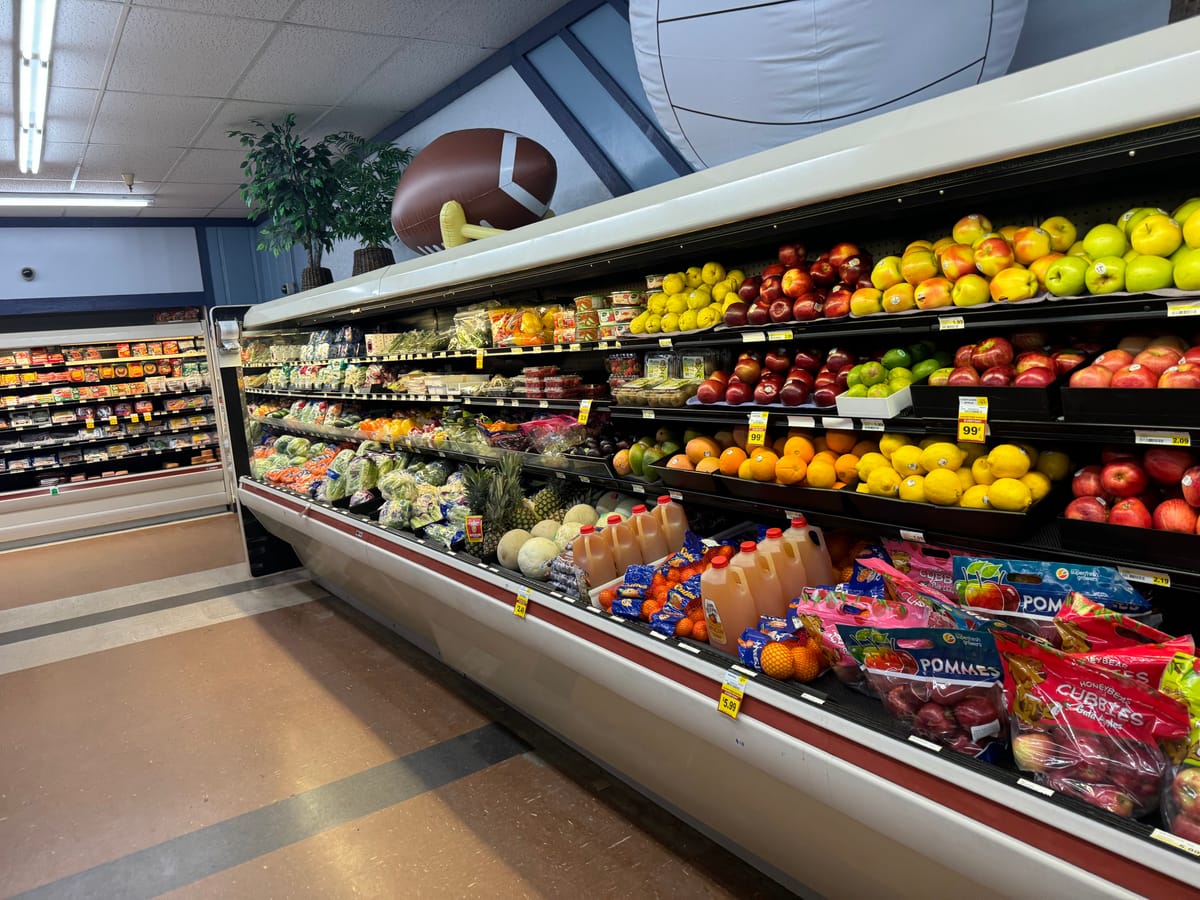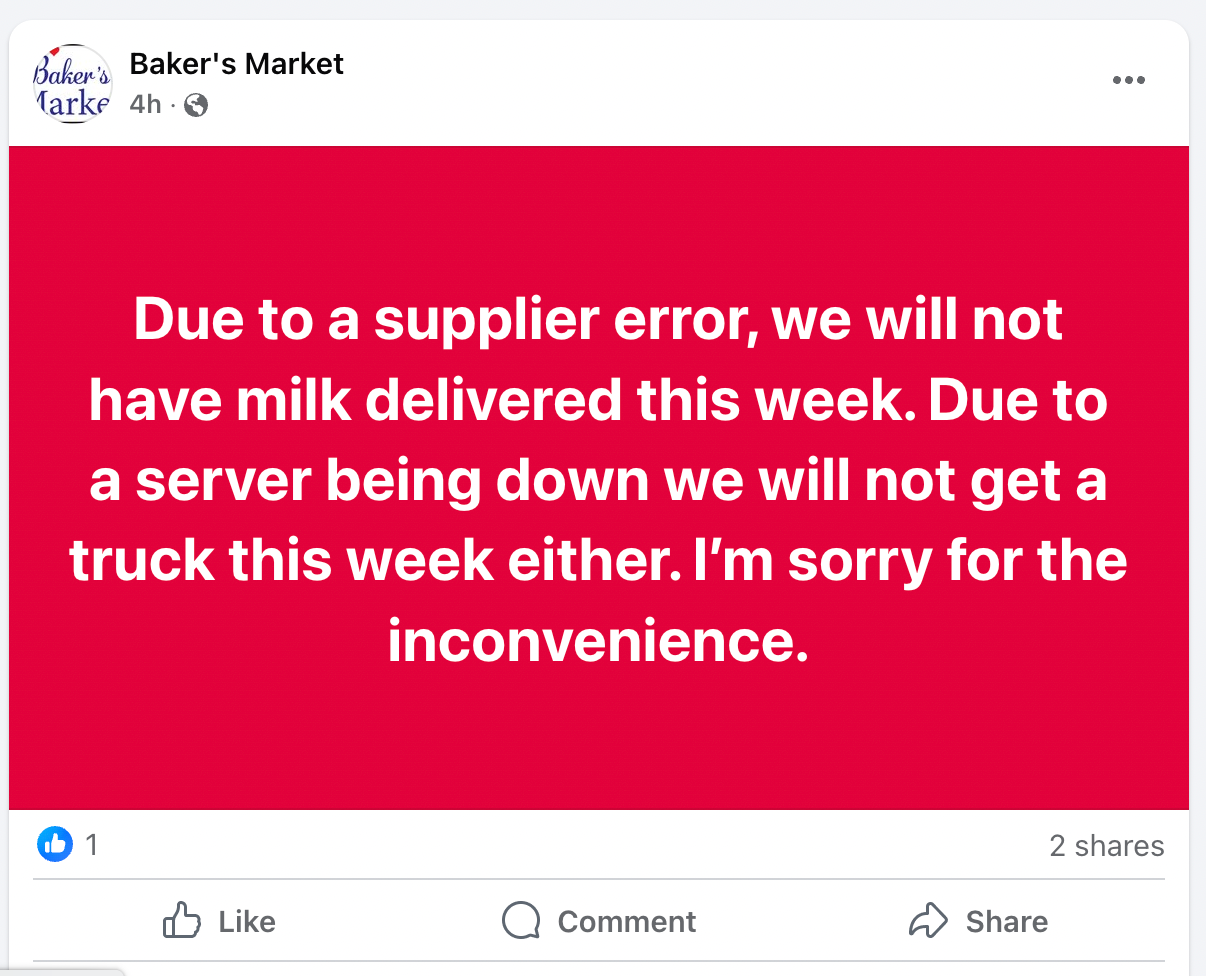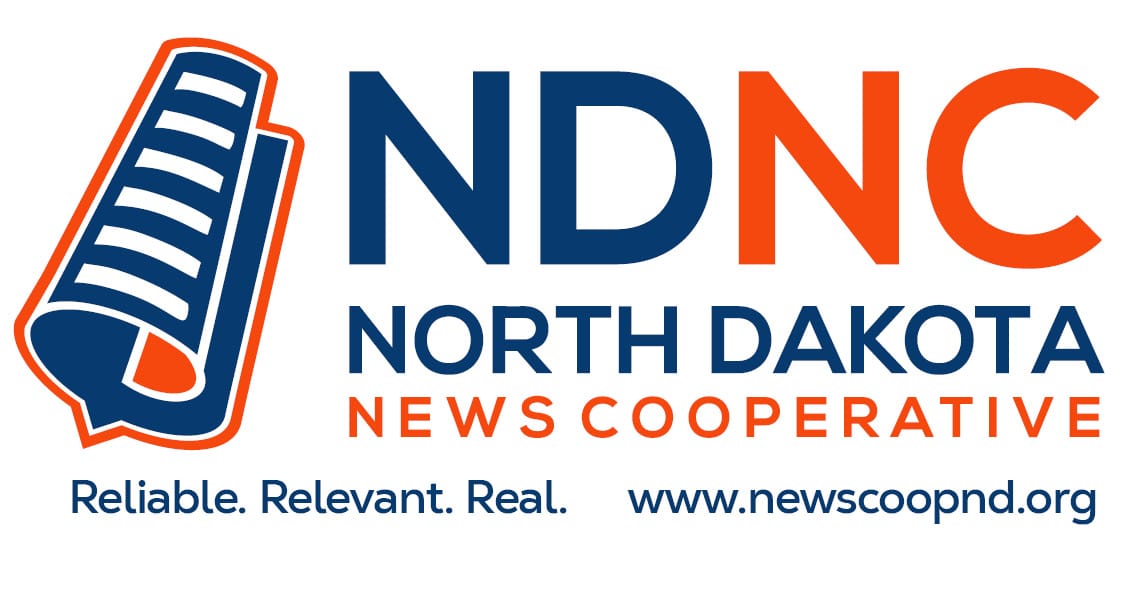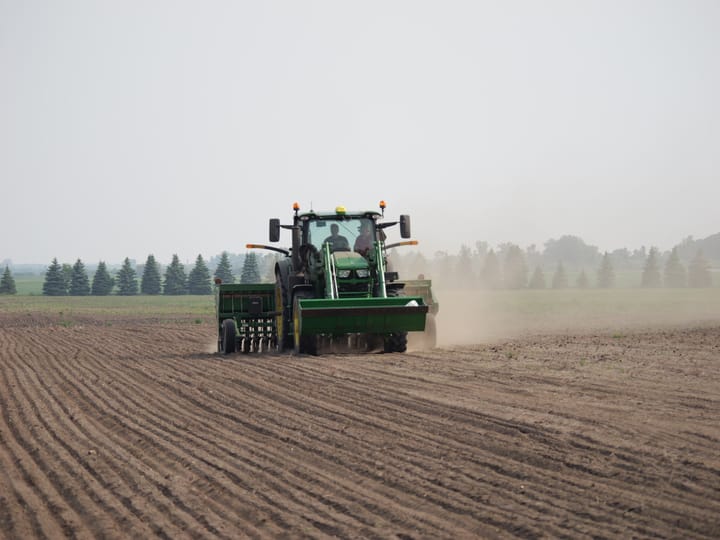Grocery stores in North Dakota affected by cyberattack on distributor
Already struggling small, rural stores likely to feel the most impact

Nearly half of grocery stores in North Dakota are feeling the impact of supply chain disruptions after a cyberattack to a major distributor.
According to the North Dakota Grocers Association, as many as 60 out of 138 grocery stores in the state are supplied by the United Natural Foods Inc. (UNFI) distribution network.
Grocery stores impacted across the state are now struggling with the fallout as they try to fill orders for the coming weeks.
This could mean shortages of milk and other perishable products in some areas over the next week or two.
Smaller, rural grocery stores - many which are already struggling to remain viable - are likely to be hardest hit as the situation resolves with larger stores getting orders fulfilled first.
Messages began popping up on Facebook and other social media accounts of stores across the state notifying customers of potential disruptions to the supply of products early in the week.
John Dyste, president of the North Dakota Grocers Association, said he only started hearing about the issue on June 9 after seeing several notices through social media and afterward connected with a contact at UNFI.
“What I was told by an individual with UNFI is that they’re basically trying to fill orders ‘the old way,’ which was typically by hand,” Dyste said. “He said they’re having trouble receiving product and sending product out.”
One issue is that even if milk and other perishables are ready to ship out of a warehouse, orders can’t be taken through the online system, meaning those products can’t get where they need to go and may end up being discarded if they expire.
“If it’s a perishable product it’s going to be a dilemma,” Dyste said.

Bronson’s Marketplace in Beulah was one store with some impacts, but are still able to get orders through “the old way” and didn’t expect much disruption, according to general manager Devan Hoffer.
“I would imagine the smaller stores, and I don’t know how to say this politically, but the bigger stores are probably going to get attention sooner than the smaller stores,” Dyste said.
While some stores contacted by NDNC reported that they’re working through the situation and trying to get orders filled in the way Dyste describes, others report the situation is causing significant issues.
Zach Holen, manager of the grocery in McClusky, said the situation with the distributor has been chaotic since the cyberattack was discovered.
Holen said a truck was supposed to deliver on June 9 but did not fulfill the order.
“We’re told we might get a truck next week, or we might not, so we’re trying to figure out some alternatives to keep the store stocked,” Holen said.
The store is running short of just about everything, according to Holen.
“Our meat, our dairy, our produce, all the dry goods come on UNFI trucks,” Holen said.
The other grocery nearest to McClusky is Turtle Lake Main Street Market, which shares the same delivery truck and supply chain.
Turtle Lake Main Street Market posted on Facebook about the delivery disruption, as did Baker’s Market in Westhope saying milk would not be delivered this week.


Residents in surrounding communities may need to drive to major metro areas for fresh goods over the coming week or two if the situation is not resolved soon.
UNFI disclosed in a filing to the U.S. Securities and Exchange Commission on June 9 that it shut down parts of its network after discovering unauthorized access to its systems on June 5. They’re attempting to get their system back online with a possible restart date of June 15.
Calls to the closest UNFI distribution center located in Fargo went unanswered on June 10.
A spokesperson for UNFI reached the same day said the SEC filing was the only information they could disclose at this time.
Dyste said some stores have two distributors and can backfill on orders if there are disruptions to one of the suppliers, but this isn’t really an option for smaller, more geographically isolated stores or for other distributors to step in and quickly fill the gaps.
“It would be very difficult for anyone to drop what they’re doing and say, okay we’re going to take care of you too, without it being a problem for their regular customers,” Dyste said. “I don’t see that happening.”
For smaller stores, having multiple distributors would not be cost effective, he said.
“The way these warehouses work, the more you buy from them, the better your deals are, so to speak. Volume speaks a lot. So, if you start spreading everything to different distributors, then you're losing some of that effectiveness,” Dyste said.
The long-term issue of potential future cyberattacks could impact food security further in rural areas as well as the viability of smaller, struggling grocery stores.
“You just wonder, does this show how exposed our whole economy is that they can do this to a national wholesaler,” Dyste said. “It’s a worry and this is a pretty big deal.”

The North Dakota News Cooperative is a nonprofit news organization providing reliable and independent reporting on issues and events that impact the lives of North Dakotans. The organization increases the public’s access to quality journalism and advances news literacy across the state. For more information about NDNC or to make a charitable contribution, please visit newscoopnd.org. Send comments, suggestions or tips to michael@newscoopnd.org. Follow us on Twitter: https://twitter.com/NDNewsCoop.



